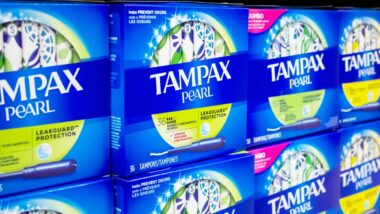Top Class Actions’s website and social media posts use affiliate links. If you make a purchase using such links, we may receive a commission, but it will not result in any additional charges to you. Please review our Affiliate Link Disclosure for more information.
In the last several years, robocalls have become more and more common—we’re so used to them at this point, many of us no longer answer our calls, instead letting them go to voicemail. And although telemarketing is regulated by the Federal Communications Commission, which has been trying to stem the tide of robocalls for years, the numbers don’t seem to be going down.
That is, they didn’t—until the coronavirus pandemic. In 2019, the number of spam calls had increased by 28 percent from the previous year to 61.4 billion. But in 2020, the numbers look quite different. Since March 23, consumers in the U.S. have seen a significant drop: a 30 percent decrease in total spam call volume.
However, this may not all be good news. While total spam call volume is down, some scammers are honing in with very specific tactics: their coronavirus robocalls designed to capitalize on people’s fears in an already turbulent, uncertain time.
RoboKiller looked into the state of robocalls during the COVID-19 pandemic, and found a number of key changes with coronavirus robocalls. Their analysis of spam call trends found that the 30 percent decrease in spam calls has coincided with the shelter-in-place orders in the U.S.
While the total volume of spam calls is down, the coronavirus robocalls that continue have latched onto a few specific topics that seem to exploit people’s fears in an already frightening time. For instance, while offers of credit cards and computer security scams are significantly down, scammers are calling about vehicle warranties, get rich quick schemes, and pharmacy scams. Indeed, all of these spam trends are up by more than 100 percent. Get rich quick scams are, in fact, up by 181 percent from their normal volume, RoboKiller reports. This choice of scam makes a lot of sense: millions of people all across the United States are unemployed. Unemployment rates have officially surged to 14.7 percent, a serious increase, according to AP News. However, some estimates place the real rate at about 23.6 percent, the likes of which haven’t been seen since the Depression era, which peaked at nearly 25 percent.
 What COVID-Related Fears Are Spammers Exploiting?
What COVID-Related Fears Are Spammers Exploiting?
Some spam tactics reportedly get even more targeted, addressing COVID-19 fears specifically. Indeed, RoboKiller reports an increase in robocalls and texts warning consumers about possible COVID-19 exposure, offering fake links for people to buy masks or hand sanitizer, or offering information about debt relief or government stimulus checks. Now more than ever, it is essential to protect ourselves from false information and scams designed to get our personal information.
There are a few key things to keep in mind in order to protect yourself from schemes through coronavirus robocalls.
- Be wary of any calls or texts that come from unknown numbers. If you aren’t expecting a call, consider letting the call go to voicemail to help you determine if the call is legitimate or not.
- If you answer a call that turns out to be spam, do not engage. In order to avoid confirming that the number they called is legitimate, avoid answering any questions or engaging in any way; simply hang up.
- If you are not already registered, sign up for the National Do Not Call registry.
- Report suspicious scam calls and texts to the FCC and/or your carrier.
- Some people choose to use a spam call and text blocker to prevent these kinds of scam calls.
Every month, the FTC receives hundreds of thousands of complaints about robocalls. While signing up for the Do Not Call registry and reporting spam calls will not actually stop these calls, it can at least help the government spot trends in spam and learn how best to fight back against the rising tide of robocalls. The FTC is working to fight back through both technological means and litigation.
Some consumer advocates are asking for stronger protections against coronavirus robocalls. “The FCC needs to take decisive action to ensure that phone companies actually stop scam robocalls before they reach the consumer,” said Maureen Mahoney, a policy analyst with Consumer Reports.
More and more consumers across the country are turning to litigation after being hit with spam texts and robocalls. If you have been hit with coronavirus robocalls or spam texts, you may be able to file a TCPA lawsuit and pursue compensation.
Filing a lawsuit can be a daunting prospect, so Top Class Actions has laid the groundwork for you by connecting you with an experienced attorney. Consulting an attorney can help you determine if you have a claim, navigate the complexities of litigation, and maximize your potential compensation.
Join a Free Coronavirus TCPA Class Action Lawsuit Investigation
If you received unsolicited coronavirus texts, robocalls, or pre-recorded messages, you may be eligible to join a FREE coronavirus TCPA class action lawsuit investigation.
This article is not legal advice. It is presented
for informational purposes only.
ATTORNEY ADVERTISING
Top Class Actions is a Proud Member of the American Bar Association
LEGAL INFORMATION IS NOT LEGAL ADVICE
Top Class Actions Legal Statement
©2008 – 2024 Top Class Actions® LLC
Various Trademarks held by their respective owners
This website is not intended for viewing or usage by European Union citizens.


 What COVID-Related Fears Are Spammers Exploiting?
What COVID-Related Fears Are Spammers Exploiting?













5 thoughts onCoronavirus Robocalls Capitalize on Consumer Fears
add me please
add me please
add me please
AND ME PLEASE
Yes..I received a couple robot covid 19 messages on my phone..from buying masks at inflated prices..to covid 19 kits that some Dr. Was selling at an outrageous price..so add me in this lawsuit..thank you.